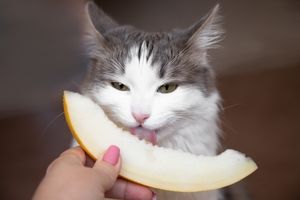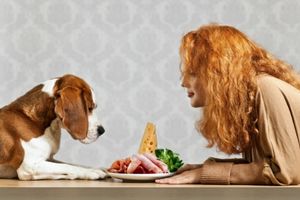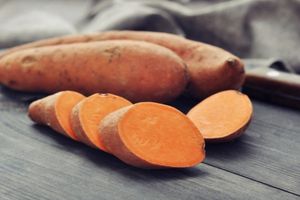With all the talk of pet food recalls in the last few years, pet parents ask us what we recommend for “treating” their cat or dog. We love our canine and cat companions and want to make them happy, and as we all know, the way to just about every cat and dog’s heart is through their stomachs! But you also likely know that pet obesity is at epidemic proportions, so we don’t want to turn a beautiful act into something that could harm our fur friends. In the article below, we’ll be advising on ways to treat your pet without contributing to obesity. And you’ll thank us after reading it, as we not only offer super healthy alternatives, but these are all things you likely buy for your family on a regular basis—so you’ll be saving money! So long, unhealthy commercial treats.

Factor in Size
Even tiny amounts of high-calorie human foods are the equivalent by body weight to giant greasy portions of yuck for adult humans. Imagine whatever treat you’re holding in your hand is a giant plate full of food for you. Does eating an entire plate of that treat make your pet healthier or unhealthier?
Examples of this human to pet treat analogy are:
- GIANT PLATE OF CHEESE: Bad
- GIANT PLATE OF JUNK FOOD MILK BONES: Bad
- GIANT PLATE OF BROCCOLI: Good
- GIANT PLATE OF GREEN BEANS: Good
Get the idea? Think of it this way—how many times bigger than your pet are you? If you’re a 190-pound man and you have a 38-pound dog, you’re five times bigger than your dog. If you feed the dog an ounce of cheese; that’s like you eating five ounces worth. Feeling sick yet? On the other hand, if you feed your dog a piece of broccoli, that’s like you eating five pieces of broccoli. Now we’re talking!

Good Fruits and Veggies as Treats for Dogs and Cats
You might think that any fruit or veggie is excellent for your pet and, while we understand that logic, it’s not necessarily the case. In fact, some are toxic to animals, particularly in large quantities, such as onions, garlic, chives, raisins, and grapes. And things like corn cobs are also dangerous to pets due to their potential to cause obstructions.
Some examples of good fruits and vegetables to serve your pet are:
- Asparagus
- Broccoli
- Carrots
- Celery
- Corn
- Cucumber
- Green Beans
- Lettuce
- Peas
- Pumpkin (this is especially helpful if your pet has an upset stomach)
- Ripe Tomatoes (CLARIFICATION: Tomato greens – bad. Green tomatoes – mostly fine)
- Apples
- Bananas
- Berries: Blueberries, blackberries, strawberries, huckleberries, or raspberries (try ‘em frozen!)
- Melons: Watermelon, cantaloupe, and honeydew
- Pears
- Oranges

Good Proteins For Treats for Cats and Dogs
Just as in humans, treats and food that are high in protein are often healthy options for pets, but they’re also best given in moderation. And you want to avoid feeding your pets macadamia nuts, raw meat, and bones.
Some examples of positive protein treats for cats and dogs are:
- Bonito flakes (freeze-dried fish, used in Japanese cooking)
- Cottage Cheese
- Eggs (COOKED, PLEASE! – raw eggs may contain Salmonella or E. Coli, and an enzyme called avidin that decreases the absorption of biotin - a B vitamin - which can lead to skin and coat problems)
- Meat (lean, cooked, and unseasoned): Chicken, Lamb, Beef, Venison, Turkey, Rabbit, Duck, Fish
- Peanut Butter (make sure it’s xylitol-free)
- Yogurt (including frozen yogurt in the summer!)

Good Starches as Treats for Cats and Dogs
You read the word “starches” and immediately thought unhealthy, didn’t you? In moderation, some starches are just fine as treats for cats and dogs.
Examples of starches you can feed your dogs and cats are:
- Cheerios
- Popcorn (plain/unbuttered)
- Potato
- Rice
- Rice cakes
- Sweet potatoes
So now, you don’t need to buy commercial dog and cat treats anymore (which, let’s face it, are pretty much all junk food), and you can start feeding your pet healthy, antioxidant-rich fruits and veggies! Happy treating! Still seeking more information on pet nutrition for contribution to optimal cat and dog wellness? Contact us today!
